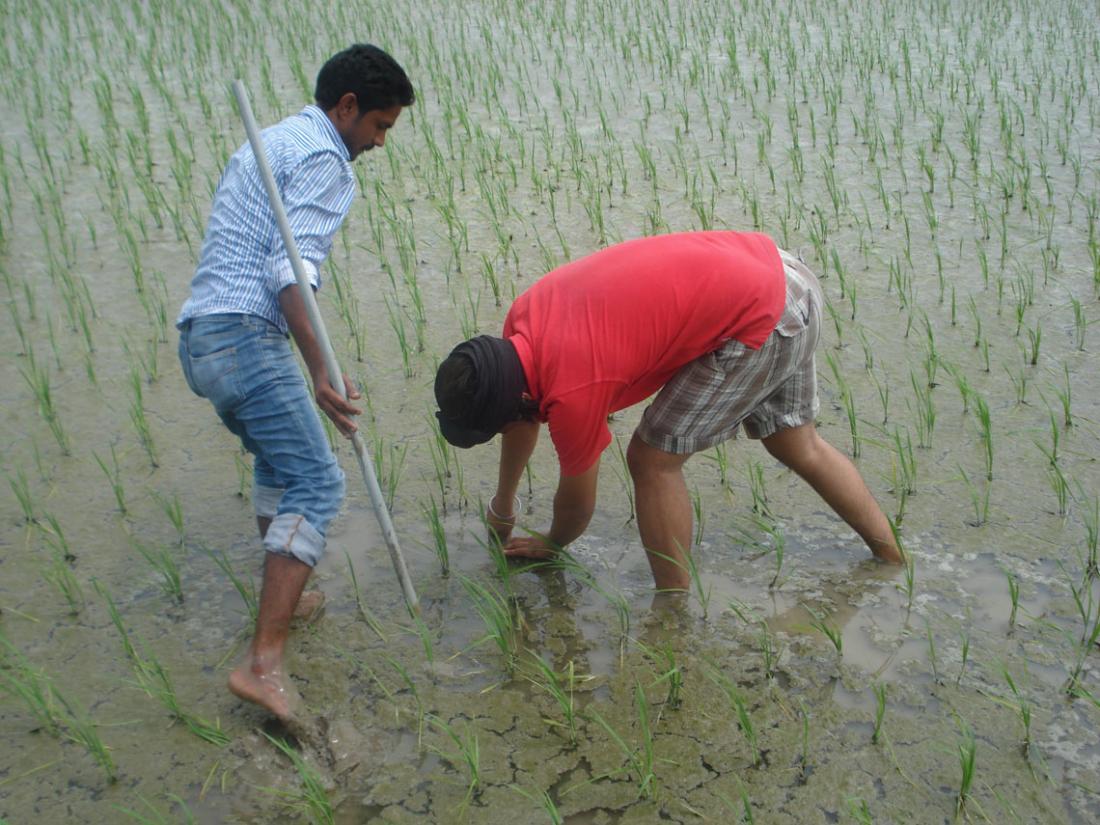Researchers at work in Punjab
The state of Punjab spearheaded the Green Revolution that has transformed Indian agriculture. Encouraged by price guarantees, expanded irrigation and the introduction of high-yielding crop varieties, Punjabi farmers have shifted toward intensive production of grains. Although it occupies just 1.5% of India’s land mass, Punjab now grows more than half the country’s grain, including nearly 20% of its wheat and 12% of its rice.
However, groundwater levels are falling across 90% of the state, with the decline accelerating since the 1980s. In the context of climate change, the timing of the rainy season is increasingly unpredictable. With no solid climate information to guide them, and with state policies encouraging energy- and waterintensive
agriculture, farmers are rapidly depleting underground aquifers.
Since 2008, Punjab Agricultural University in India and Columbia University in the United States have worked with farmers to address these unsustainable practices. The latest phase of research – launched in 2012 with funding from Canada’s International Development Research Centre – links low-income farmers, corporations, the state development bank and the state agricultural extension program to test innovations that will reduce pressure on overused aquifers. This initiative is helping farmers use meteorological information to plan their water and energy use, while exploring how policy reforms and agricultural value chains might shift production toward more sustainable practices.
A key innovation is the use of low-cost, locally produced soil moisture sensors that let farmers know when to irrigate and seed. In trials, farmers testing sensors averaged water and energy savings of more than 20%. When farmers used the sowing method known as direct seeding of rice rather than transplanting, water savings were as much as 34%, with no decline in yields. Research is now scaling up to include more than 5,000 farmers in five districts of Punjab.
Policy reform is also essential. Since farmers have little incentive to change their practices when electricity is provided free to them, they receive a guaranteed price for water-intensive grain crops, and there is no regulation or pricing on groundwater. To explore market incentives that could move farmers away from thirsty crops such as rice, the team is working with industry to test how agricultural value chains can encourage crop diversity. Through cooperative agreements with farmers, the food corporation Field Fresh is contracting for fruits and vegetables, which consume less water than grains. The processing stages also provide work for local women.
With research concluding in late 2015, the team is assessing the potential for a prolonged mega drought, as well as the role that changes in irrigation practices, crop diversification and energy pricing could play in mitigating its impacts. Recommendations will be presented to policymakers and the state agricultural extension program. The evidence will help guide a much-needed transformation of water and energy use in Punjab.
For further information contact:
Rajinder Singh Sidhu
Punjab Agricultural University, India
E-mail: [email protected]
International Development Research Centre, Canada
E-mail: [email protected]
*This article also appears in Asia Research News 2015 (P.16).



